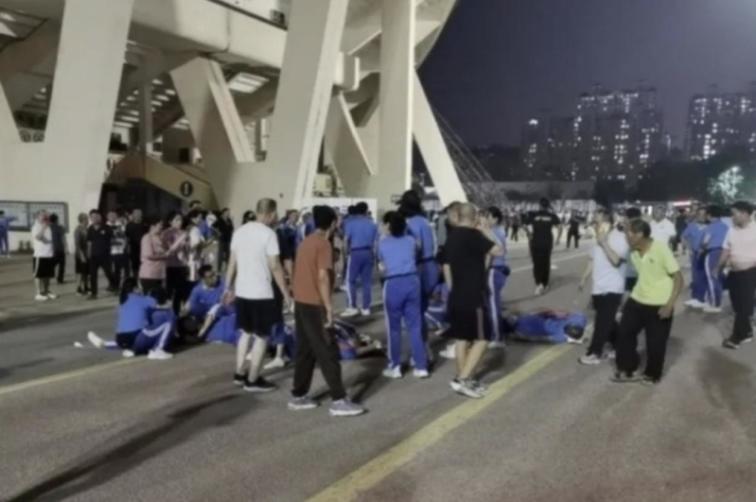In recent years, as China’s economy has continued to deteriorate and housing prices have plummeted, a “new type of poor” is spreading across first-tier cities like Beijing and Shanghai. (Video screenshot)
[People News] In recent years, as China’s economy has continued to worsen and housing prices have plummeted, a “new type of poor” has been spreading across major cities like Beijing and Shanghai. Although these individuals may appear well-dressed, they are burdened by heavy debt and struggling to make ends meet.
A new term has emerged on Chinese social media—“the new poor.” This group is spreading across major cities in China, especially in first-tier cities like Beijing, Shanghai, Guangzhou, and Shenzhen, where the phenomenon of “new poor” is particularly prevalent.
The "new poor" typically have certain characteristics: (1) they own property and cars in the city; (2) they have little to no savings; (3) their debt often reaches millions of yuan, with monthly repayments that consume most of their income, leaving them struggling to make ends meet due to reduced earnings.
Many wonder how people who can afford homes and cars can be considered poor. The answer lies in the fact that many of these purchases were made through loans, which come with significant monthly payments extending over decades.
In recent years, with China’s economic downturn leading to job losses and income instability, many people have been forced to cut back on expenses to cope with mortgage and car loan pressures, resulting in a diminished quality of life. They avoid extra entertainment costs and cannot afford to get sick, becoming the “new poor” in the city.
These individuals may live in million-yuan homes yet struggle to afford a 10,000-yuan mortgage payment; they drive high-end cars but can’t afford a 500-yuan gas refill. Their daily lives are dominated by high loan repayments, with almost all income going toward mortgage and car loan payments.
They must work tirelessly every day, constantly worrying about their financial stability. If anything goes wrong with their job—whether due to unemployment or an inability to make monthly payments—the bank will repossess their home and car, and they will lose the down payments and years of effort they invested.
These "new poor" are less resilient to risk than rural residents, as they have no land to rely on or means to grow their own food. In the city, everything from food to shelter requires money.
Besides mortgage payments, they face costs for living expenses, water, electricity, transportation, and social obligations. Every day begins with a series of payments and spending.
These "new poor" are constantly running to keep up with life’s demands. If their income suddenly stops, the city will mercilessly force them to pack up and leave.
In recent years, China’s real estate market has weakened significantly, with housing prices in first-tier cities dropping by nearly 30% and even more drastic drops—over 50% in some areas—in smaller cities. This has left those who bought at peak prices facing substantial asset devaluation. Many middle-aged individuals have been forced to sell their homes and switch to renting to relieve the burden of high mortgage payments, leading to a trend known as "selling to rent."
Data from the Beike Research Institute shows that middle-aged renters account for 45% of the rental market in Beijing and 40% in Shanghai, with those over 30 making up over 55% of the rental market. In most cases, these renters are families who chose to rent as a unit.
Long, a media professional in mainland China, notes that whether renting or buying, the main issue is the pressure from mortgage payments, particularly after layoffs and the exit of foreign investments. If people are unable to make their mortgage payments, banks will repossess their homes, a situation that has become increasingly common in China.










News magazine bootstrap themes!
I like this themes, fast loading and look profesional
Thank you Carlos!
You're welcome!
Please support me with give positive rating!
Yes Sure!